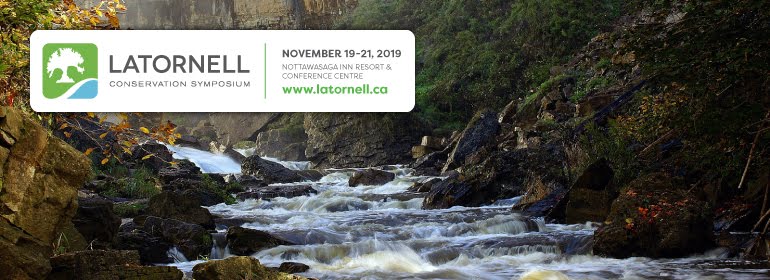Rising temperatures and changing precipitation patterns in Ontario have already reduced river flows, warmed surface waters and impacted wetlands. These impacts will continue, and other threats to environmental and public health are expected to materialize including increased flooding and reduced quantity and quality of drinking water.
Managing impacts on water, water infrastructure and water related natural features as we adapt to a changing climate will be a significant challenge.
As well, Ontario – particularly in the Greater Toronto Area - continues to grow necessitating watershed planning to guide this growth to lessen the impact on both surface flows and groundwater recharge as well as natural systems.
This leads us to ask - are we on track to a water crisis here in Ontario?
We’re going to explore this topic in a discussion panel on Day 3 of the 2017 Latornell Conservation Symposium which takes place November 21 – 23 at the Nottawasaga Inn near Barrie, Ontario.
Moderated by popular TVO Host, Steve Paikin, the panel will explore questions we all need to be asking:
What is the state of our water in Ontario – there are many partners in our watersheds monitoring and reporting on water quality and quantity. Where are we at today? How is water allocated? Who controls it?
Do we value water enough? Compared to other regions, Ontario seems to have quite a bit of water however Canadians are the second biggest water users next to the USA and as a result, are we pricing water the way we should be?
Over the past year or so there has been quite a debate about the level of fees being applied through the provincial Permit to Take Water (PTTW) program. Water charges should encourage water conservation and fairness among all water takers. Does the current cost do that?
Another question we need to ask ourselves is:
What more do we need to do to protect it for the future?
Sustainable water resources are needed daily for personal use, for use in all economic sectors and, of course, to ensure resilient ecosystems which help us to adapt to the impacts of climate change and rapid urbanization.
As our population continues to grow, will we have enough water for all our uses?
We hope you’ll join us at the Latornell Conservation Symposium later this fall and hear what water experts and major users have to say.
This blog post contributed by Deb Martin-Downs, CAO Credit Valley Conservation, Latornell Steering Committee Member








